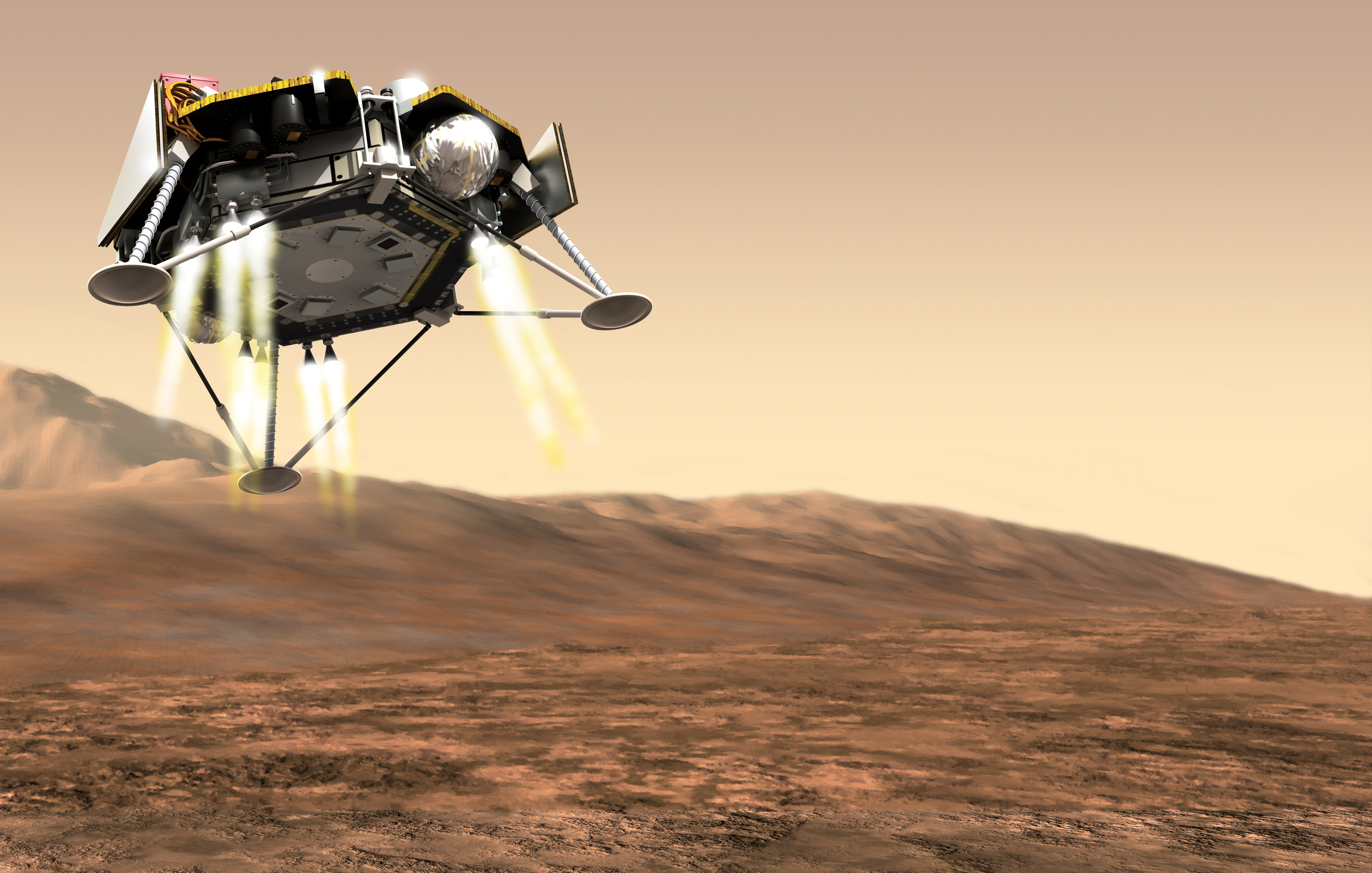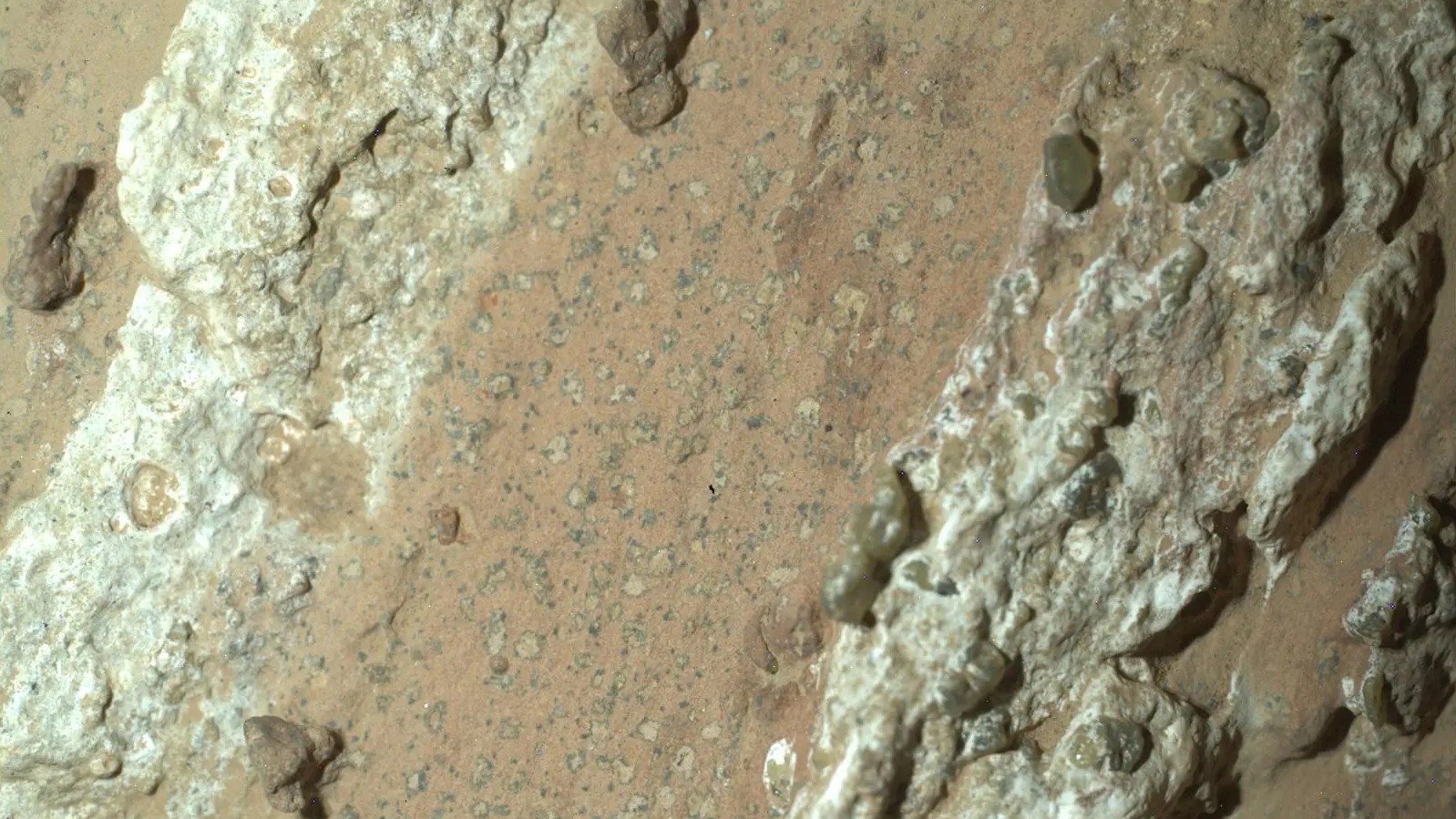Mars' InSight lander officially goes dark after 4 years


A free daily email with the biggest news stories of the day – and the best features from TheWeek.com
You are now subscribed
Your newsletter sign-up was successful
As one generation of space travel begins with the Artemis missions, another concludes, as NASA announced Wednesday that Mars' InSight lander mission had officially come to an end.
In a statement, NASA confirmed that the lander had died after four years on the Martian surface, and said mission controllers "were unable to contact the lander after two consecutive attempts, leading them to conclude the spacecraft's solar-powered batteries have run out of energy."
NASA said that while it will continue to listen for potential signals from the lander, further communication was unlikely.
The Week
Escape your echo chamber. Get the facts behind the news, plus analysis from multiple perspectives.

Sign up for The Week's Free Newsletters
From our morning news briefing to a weekly Good News Newsletter, get the best of The Week delivered directly to your inbox.
From our morning news briefing to a weekly Good News Newsletter, get the best of The Week delivered directly to your inbox.
The loss of the InSight lander had been anticipated for a while by NASA officials, due to a buildup of Martian dust on the craft that had blocked its solar panels.
"We've been expecting this to come to an end for some time," Bruce Banerdt, mission investigator at NASA's Jet Propulsion Laboratory, told The New York Times. "I think that it's been a great run."
The InSight lander's primary mission was to study the effects of seismology and earthquakes on Mars. It first landed on the planet on Nov. 26, 2018, and spent more than 1,500 days collecting data on the surface.
Although the mission may be at its end, Thomas Zurbuchen, the associate administrator of NASA's Science Mission Directorate, lauded InSight's accomplishments.
A free daily email with the biggest news stories of the day – and the best features from TheWeek.com
"While saying goodbye to a spacecraft is always sad, the fascinating science InSight conducted is cause for celebration," Zurbuchen told CNN. "The seismic data alone from this Discovery Program mission offers tremendous insights not just into Mars but other rocky bodies, including Earth."
Justin Klawans has worked as a staff writer at The Week since 2022. He began his career covering local news before joining Newsweek as a breaking news reporter, where he wrote about politics, national and global affairs, business, crime, sports, film, television and other news. Justin has also freelanced for outlets including Collider and United Press International.
-
 Health insurance: Premiums soar as ACA subsidies end
Health insurance: Premiums soar as ACA subsidies endFeature 1.4 million people have dropped coverage
-
 Anthropic: AI triggers the ‘SaaSpocalypse’
Anthropic: AI triggers the ‘SaaSpocalypse’Feature A grim reaper for software services?
-
 NIH director Bhattacharya tapped as acting CDC head
NIH director Bhattacharya tapped as acting CDC headSpeed Read Jay Bhattacharya, a critic of the CDC’s Covid-19 response, will now lead the Centers for Disease Control and Prevention
-
 NASA’s lunar rocket is surrounded by safety concerns
NASA’s lunar rocket is surrounded by safety concernsThe Explainer The agency hopes to launch a new mission to the moon in the coming months
-
 Blue Origin launches Mars probes in NASA debut
Blue Origin launches Mars probes in NASA debutSpeed Read The New Glenn rocket is carrying small twin spacecraft toward Mars as part of NASA’s Escapade mission
-
 Dinosaurs were thriving before asteroid, study finds
Dinosaurs were thriving before asteroid, study findsSpeed Read The dinosaurs would not have gone extinct if not for the asteroid
-
 Africa could become the next frontier for space programs
Africa could become the next frontier for space programsThe Explainer China and the US are both working on space applications for Africa
-
 NASA reveals ‘clearest sign of life’ on Mars yet
NASA reveals ‘clearest sign of life’ on Mars yetSpeed Read The evidence came in the form of a rock sample collected on the planet
-
 SpaceX breaks Starship losing streak in 10th test
SpaceX breaks Starship losing streak in 10th testspeed read The Starship rocket's test flight was largely successful, deploying eight dummy satellites during its hour in space
-
 Rabbits with 'horns' sighted across Colorado
Rabbits with 'horns' sighted across Coloradospeed read These creatures are infected with the 'mostly harmless' Shope papilloma virus
-
 Why does the US want to put nuclear reactors on the moon?
Why does the US want to put nuclear reactors on the moon?Today's Big Question The plans come as NASA is facing significant budget cuts
